Five things we learned from the 2021 UAE Tour
The peloton's youngsters shone once more
The latest race content, interviews, features, reviews and expert buying guides, direct to your inbox!
You are now subscribed
Your newsletter sign-up was successful
Mixed emotions for Ineos Grenadiers
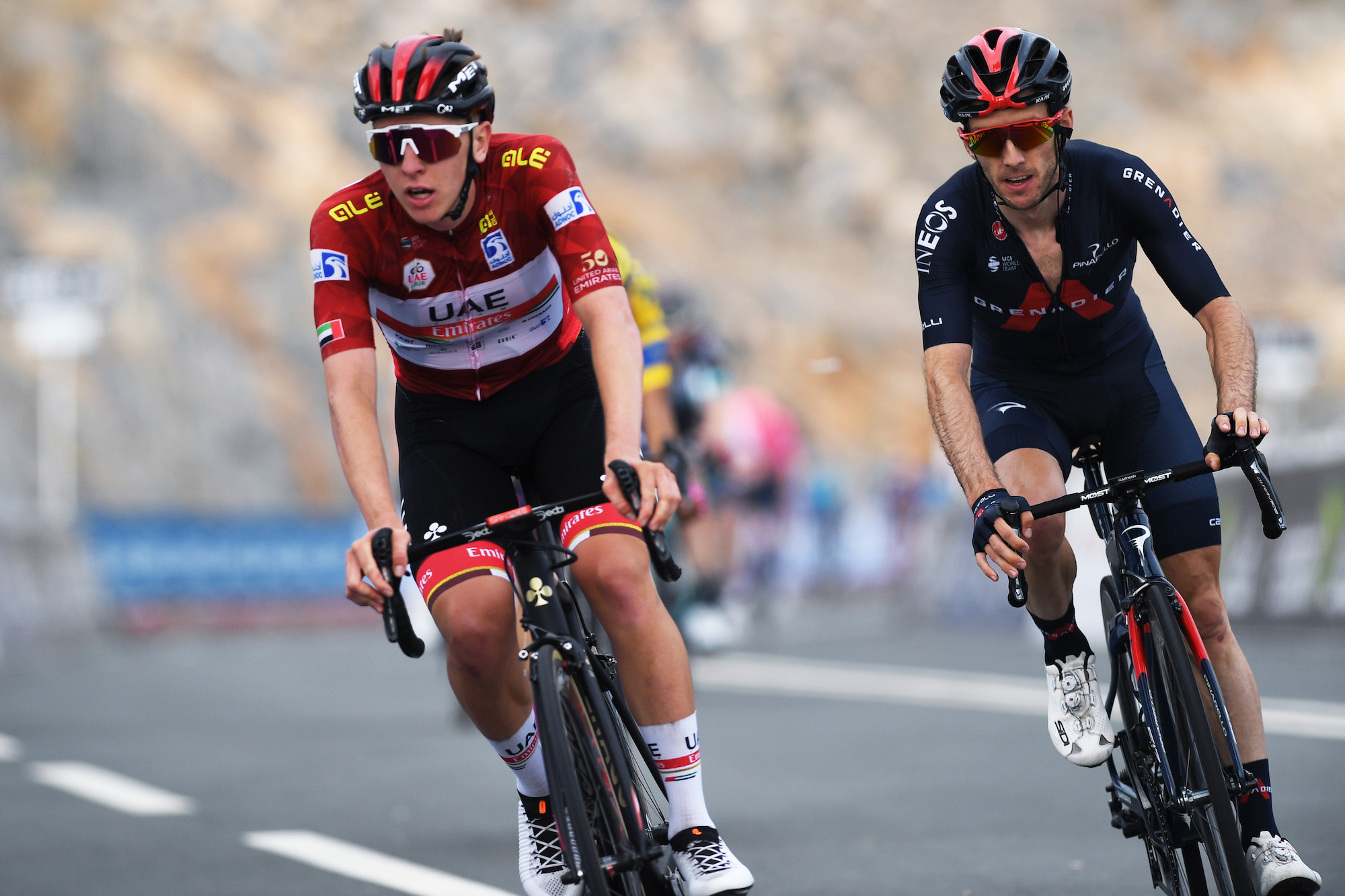
Ineos Grenadiers will reflect back on the first WorldTour race of the season with mixed emotions.
Despite his best efforts, Adam Yates wasn't quite able to defend his title and had to settle for second overall, but the team will be delighted at the flying start he made to his stint at the team, and the early signs are that his move appears to be benefiting both camps.
Ineos also looked their usual dominant selves on the two mountain top finishes, where Daniel Martinez and Ivan Sosa were joined by Colombian revelation Brandon Rivera in controlling the peloton. They were unable, however, to thin the bunch out as much as they would have liked on Jebel Jais, while the fact Yates was the only rider in the squad to make it into the front split during the opening stage crosswinds was disappointing.
And though they were unable to win the overall, a stage win was delivered courtesy of Filippo Ganna in the stage two time trial — the kind of dominant TT victory the Italian world champion is making look formulaic.
Pogačar victorious but questions remain about his team
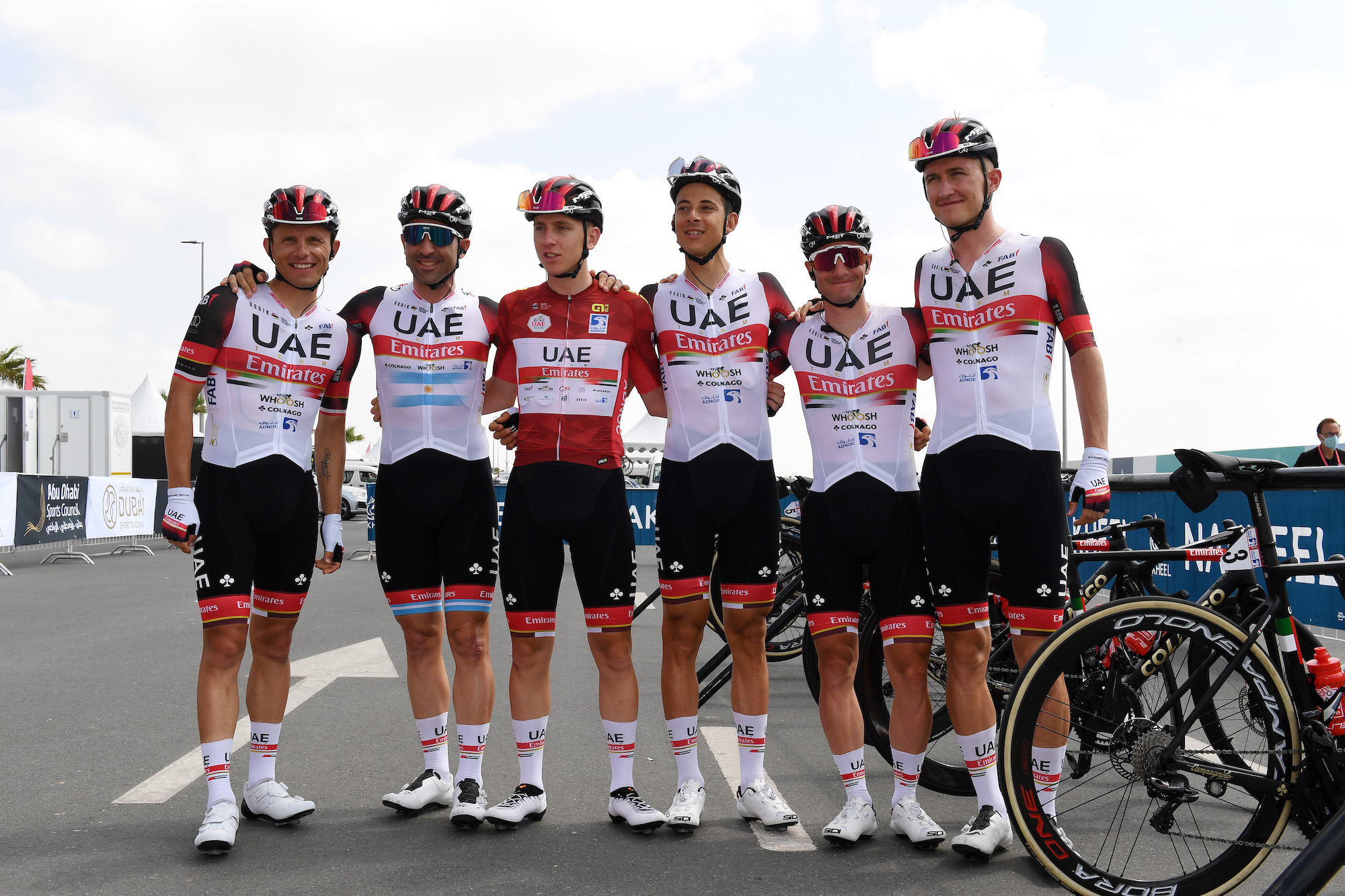
We didn’t learn anything new about Tadej Pogačar in the UAE last week. We already knew he was the best climber in the race, and that his team’s sponsors riding their home race gave him an extra incentive to win, so it came as no surprise to watch him waltz away with the overall victory with little difficulty.
The latest race content, interviews, features, reviews and expert buying guides, direct to your inbox!
However, one thing the race did bring into sharp focus was the ability of Pogacar's UAE Team Emirates team-mates following the addition of new riders during the off-season, signed to give the Slovenian the support he merits now he’s one of the sport’s superstars — and the conclusions might give Pogačar cause for concern.
UAE Team Emirates attempted to control the peloton on stage three’s mountain top finish at Jebel Hafeet, but soon saw key domestique Davide Formolo and major new signing Rafal Majka dropped, leaving Pogacar isolated while Ineos Grenadiers took control instead. Two days later, on Jebel Jais, they took a more passive role and allowed Ineos to set the tempo from the bottom, but again left their leader to fend for himself as the summit approached.
Pogacar’s great legs were enough for him to win stage three and seal overall victory in the latter regardless, but he’ll need his team-mates to up their game if he’s to win later in the season — and, most crucially of all, defend his Tour de France title.
Sam Bennett stakes claim as best sprinter in the world
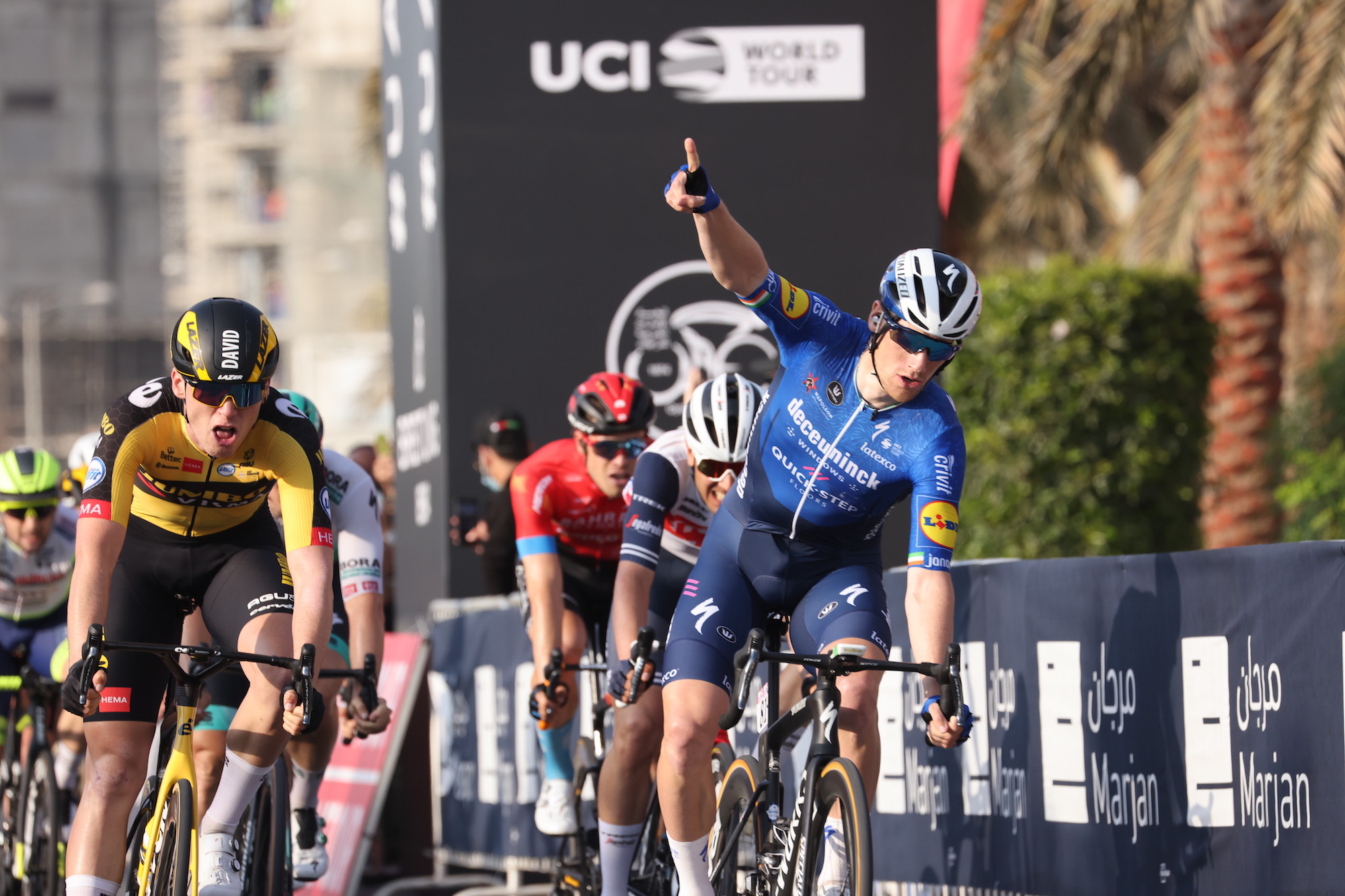
This was the first time all the major sprinters have faced off in 2021, and one rider came out comprehensively on top.
Sam Bennett won the first mass sprint on stage four by a bike-length (after crosswinds had dropped most of the sprinters and diminished the field into a small group sprint on the opening stage, won by Mathieu van der Poel), then got the better of all of his rivals again two days later by an even bigger margin. Although he couldn’t quite make it three out of three on the final stage, when Caleb Ewan (Lotto-Soudal) edged him into second-place, the Irishman was clearly the best sprinter in the race.
His Deceuninck - Quick-Step team certainly played a key part in his success, with Michael Mørkøv, in particular, earning praise for some outstanding lead-outs. So long as they keep leading him out like this, Bennett looks likely to continue finishing off the job.
To come away from a WorldTour stage race with two wins and a second-place finish is the kind of dominant display that few sprinters have managed to produce these past few seasons, and Bennett did so against pretty much all the other best sprinters in the peloton. Arnaud Démare (Groupama-FDJ) was the only notable absentee — intriguing, the two are set to go head-to-head at Paris-Nice.
After a few seasons without one obvious sprinter who could claim categorically to be the best in the world in the way that riders like Mark Cavendish and Marcel Kittel could in the past, Bennett might just be on the verge of doing so.
More new talent emerges at Jumbo-Visma
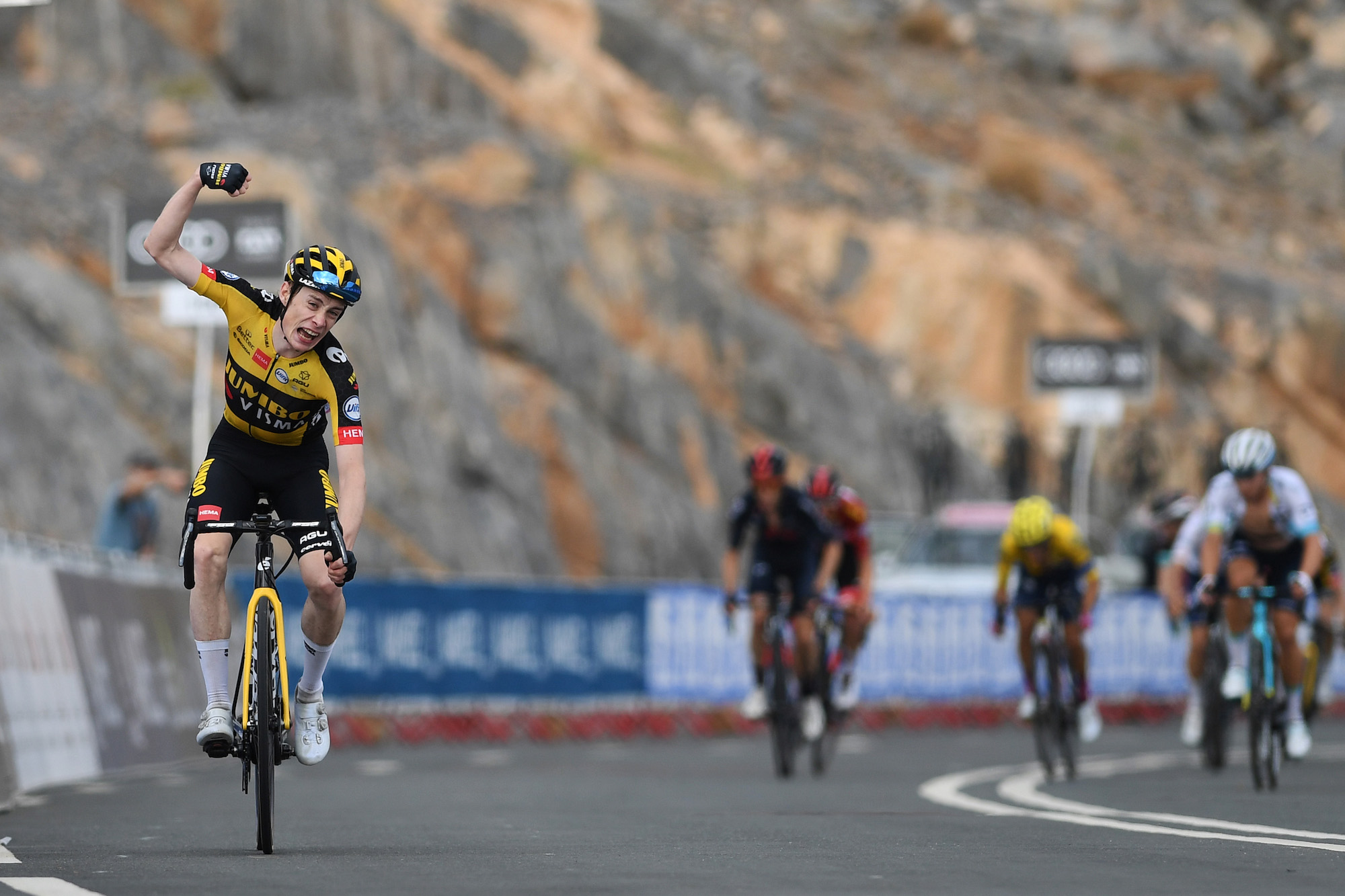
Jumbo-Visma’s Sepp Kuss may not have been able to mount a GC challenge, after being one of several pre-race favourites to get caught out in the crosswinds on stage one, but the team still enjoyed a very encouraging race as several young riders made an impression.
Despite the absence of the riders he usually works for, Kuss ultimately found himself once again cast in the super-domestique role, as he helped guide 26-year-old Australian Chris Harper to fourth overall. As a larger rider than many of the climbers, Harper had a tough time defending his high place on GC on the mountain top finishes after finding himself fourth overall following the stage two time trial, but, with help from Kuss he just about managed to do so.
They even managed to win a stage on the second summit finish, as 24-year-old Jonas Vinegaard — who has promised to break through to the elite since winning a mountainous stage of the Tour of Poland a couple of years ago — jumped out of the bunch as the summit approached.
There was success in the sprints, too, as 23-year-old Dutchman David Dekker mixed it up with the sprinters in the bunch finishes, even managing to beat them all in the points classification to win the green jersey. The way he managed to finish second on stage four despite having to sprint from far back, and also having to check his sprint was especially impressive, suggesting he could be a sprinting star in the making.
More evidence of the generational divide
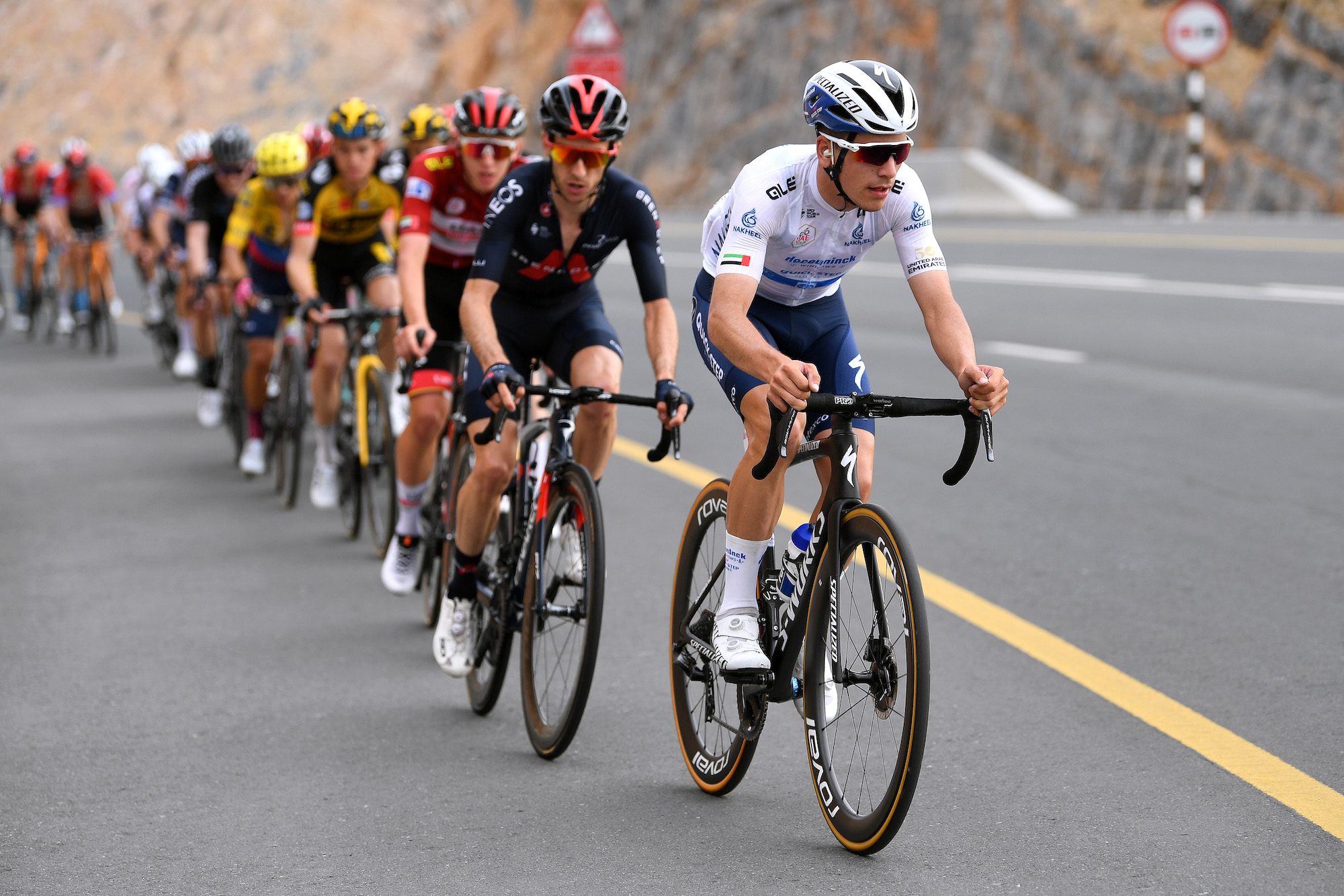
One of the trends of the 2020 season was the old guard being replaced by a new generation of frighteningly talented young riders, and the first WorldTour race of 2021 suggested that this season would continue the shift.
It wasn’t so long ago that Adam Yates could count himself as part of a young generation of emerging talents, but this week he was the only rider in the top six who was over the age of 26.
Behind Yates and overall winner Pogačar (aged 22), Deceuninck - Quick-Step’s João Almeida (also aged 22) rounded off the podium, building upon his breakthrough ride at the Giro d’Italia last year. 24-year-old Nelson Powless was fifth, partly thanks to help from his 23-year-old EF Education-Nippo team-mate Sergio Higuita, while younger still was 20-year-old neo-pro Mattias Skjelmose Jensen (Trek-Segafredo) in sixth overall in what was his WorldTour debut.
23-year-olds Florian Stork (DSM) and Harm Vanhoucke (Lotto-Soudal) also climbed very well, and might have featured more in the GC had they not both been caught out by the crosswinds on stage one, while 22-year-olds Steffan Bissegger (EF Education-Nippo) and Mikkel Bjerg (UAE Team Emirates) were second and third in the time trial respectively.
By contrast, the peloton’s old-timers struggled to keep up with their younger adversaries. Vincenzo Nibali (Trek-Segafredo) and Alejandro Valverde (Movistar) were dropped both in the crosswinds and on the climbs, while the indifferent form of Chris Froome (Israel Start-Up Nation) suggests he still has a long way to go if he’s to fulfill his ambition of returning to the top of the sport.
Stephen Puddicombe is a freelance journalist for Cycling Weekly, who regularly contributes to our World Tour racing coverage with race reports, news stories, interviews and features. Outside of cycling, he also enjoys writing about film and TV - but you won't find much of that content embedded into his CW articles.